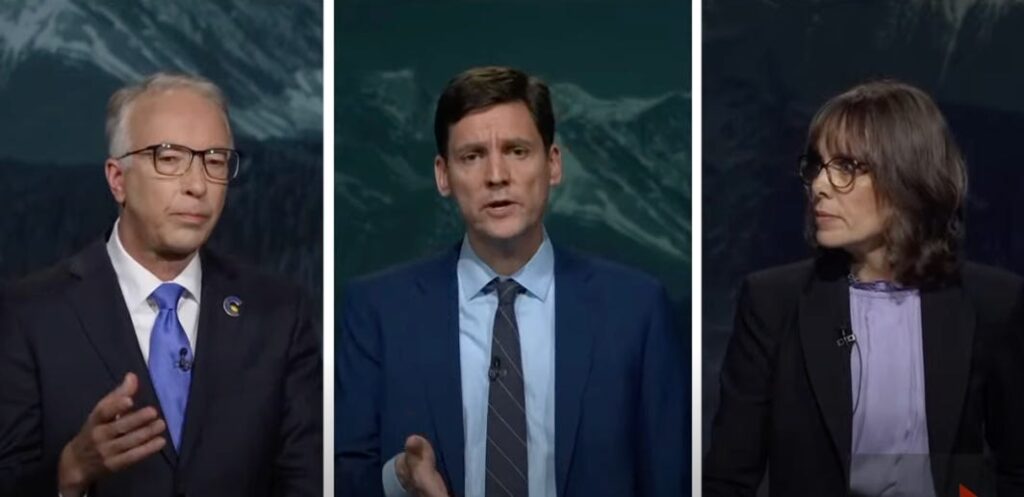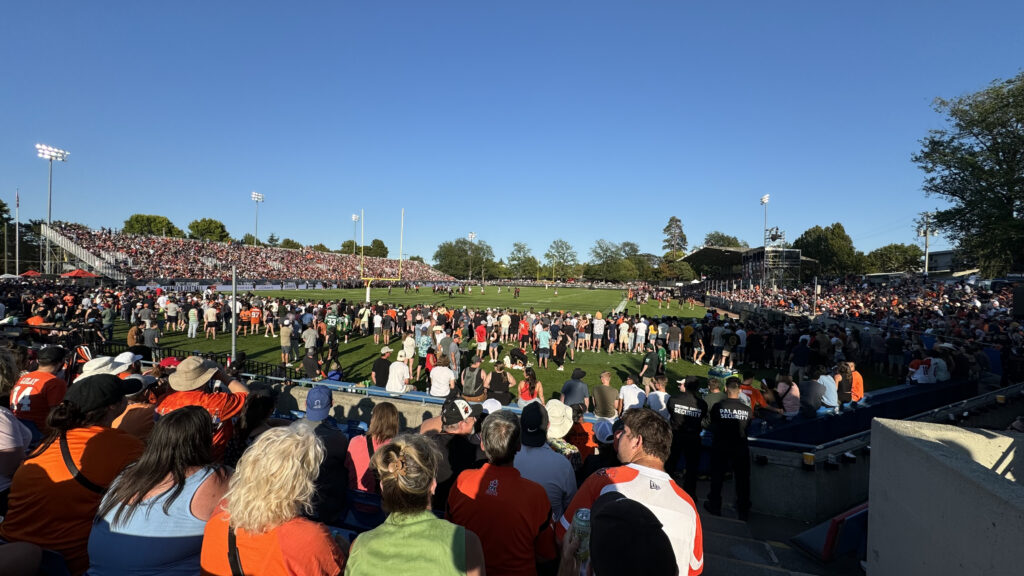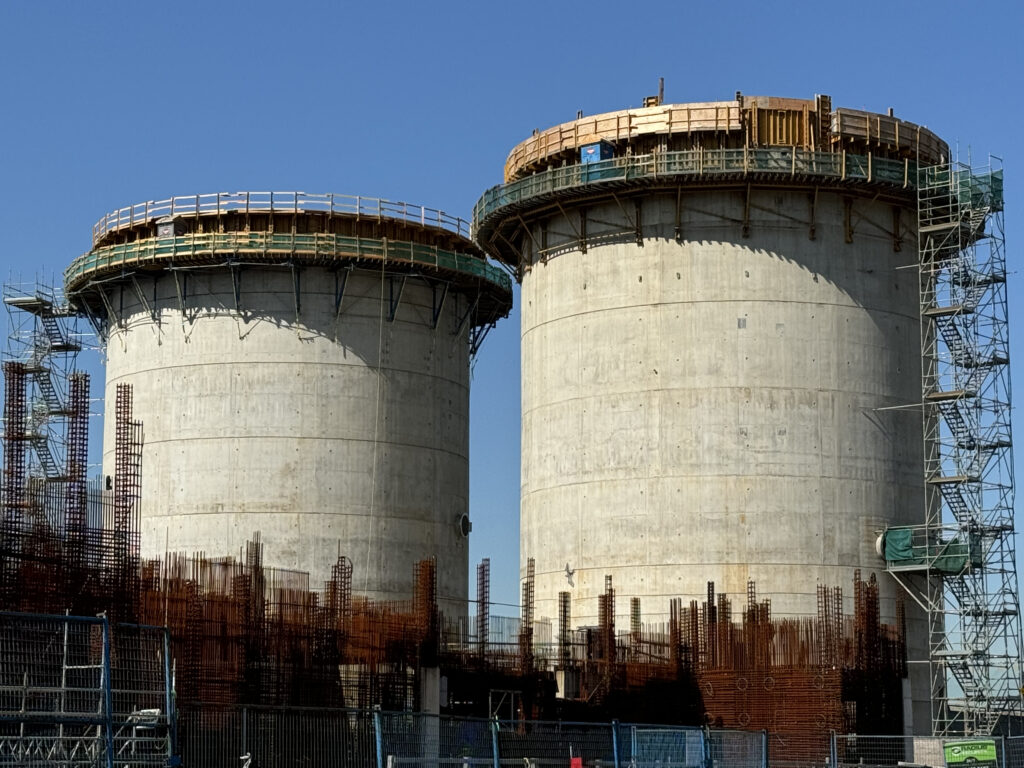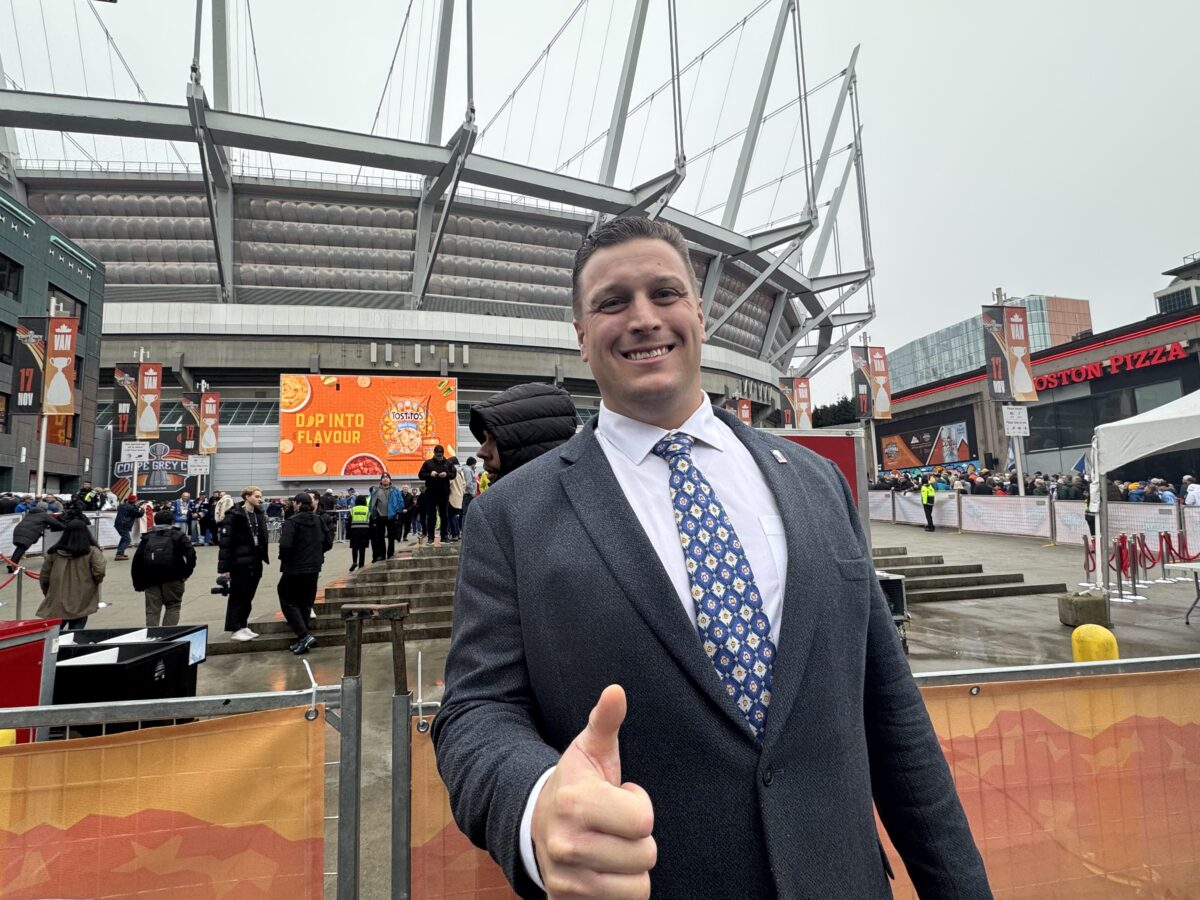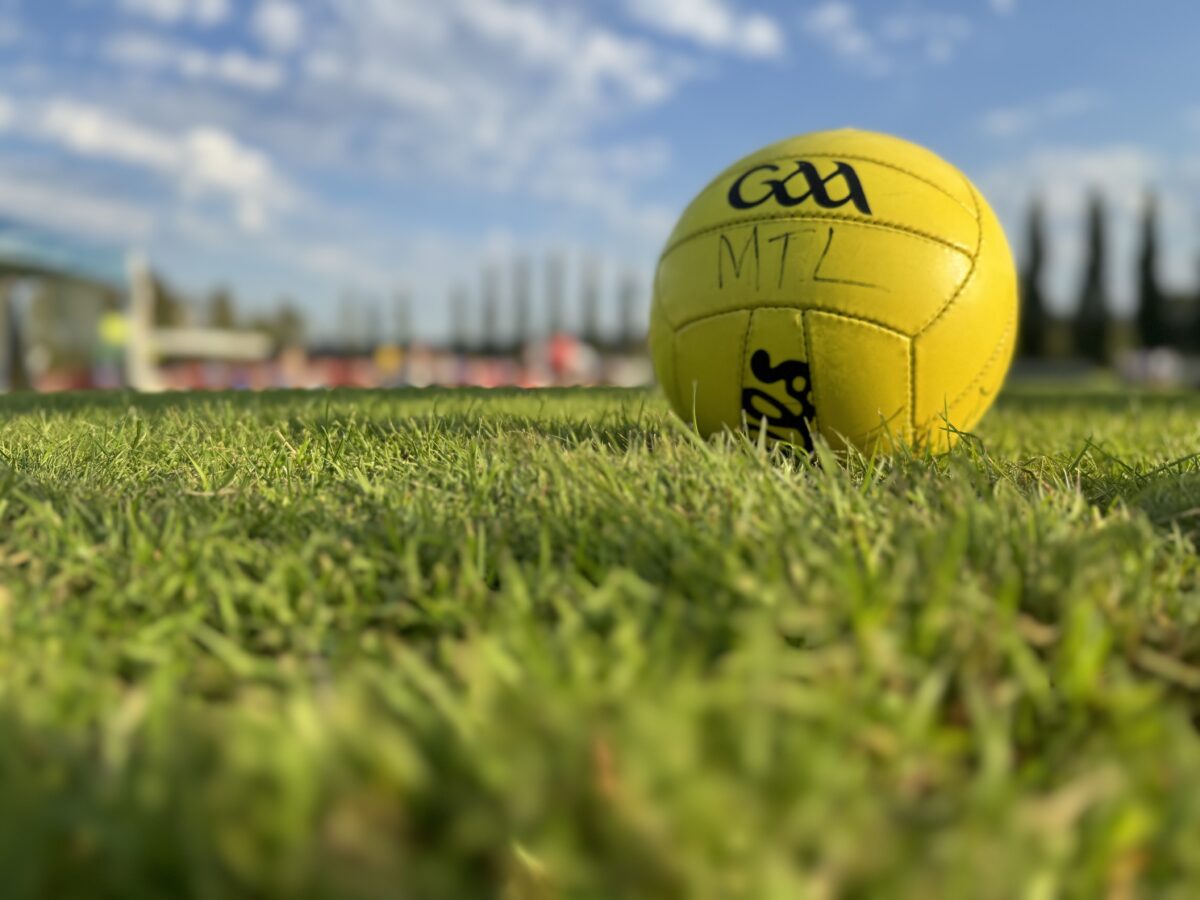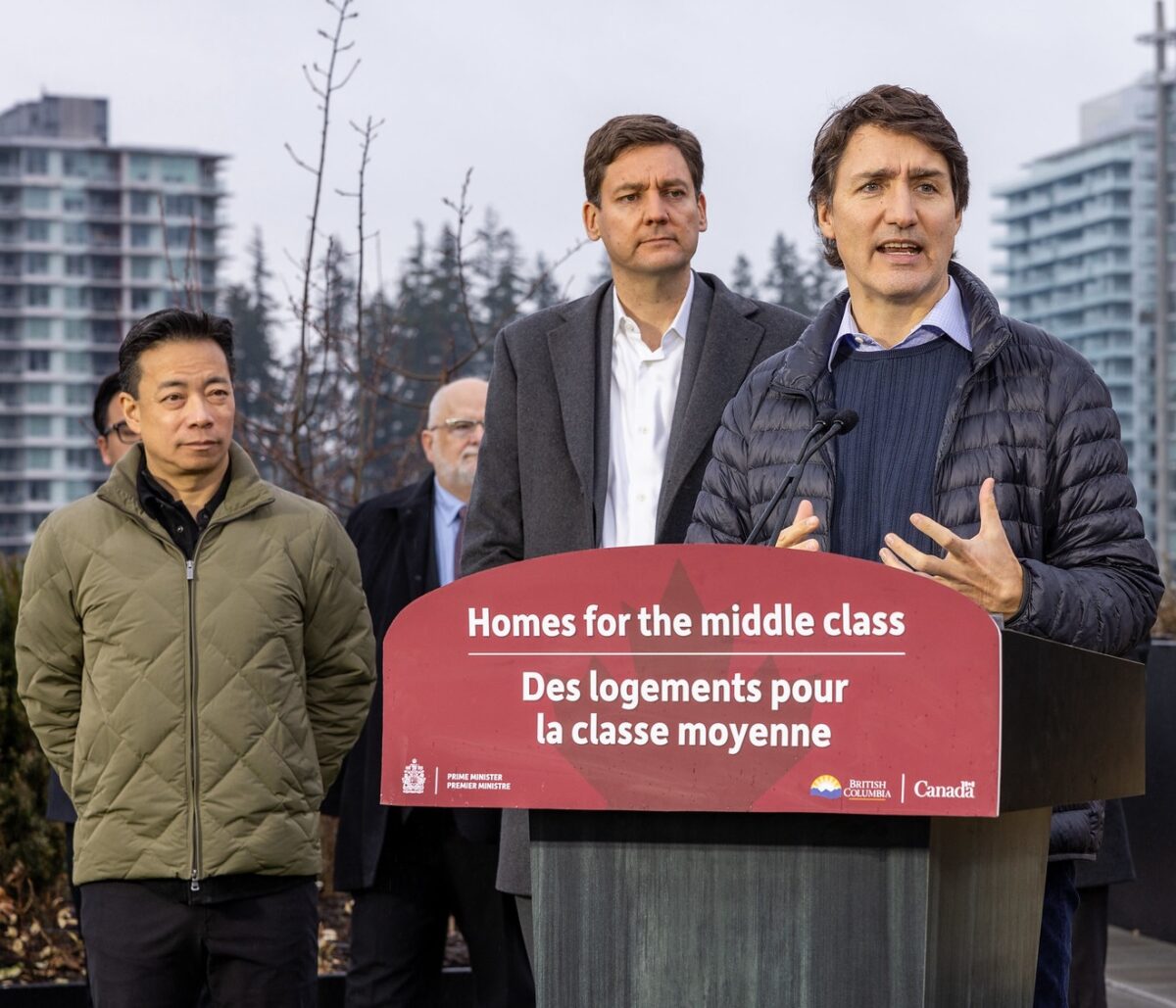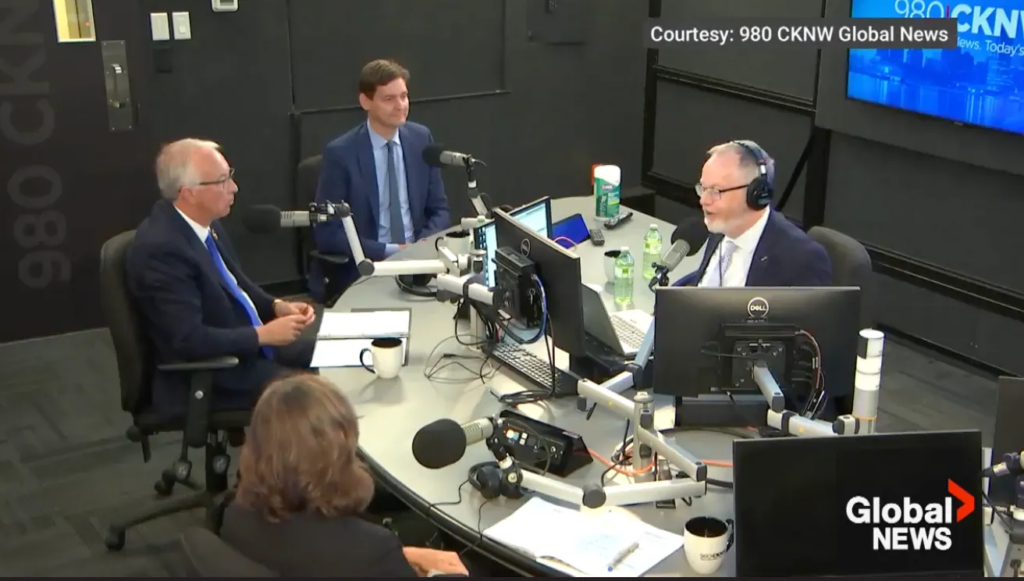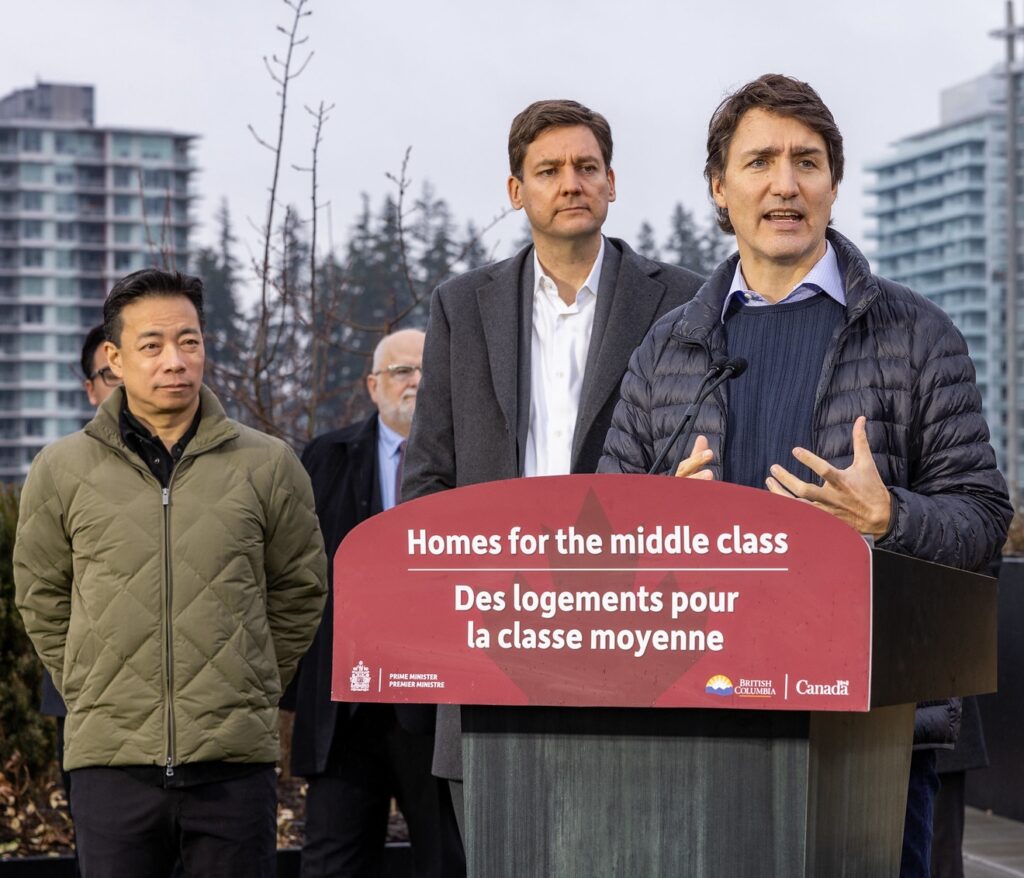Analysis: Could 2026 World Cup co-hosts Canada, Mexico leverage the tournament against Trump’s tariffs?
The countdown is on to the second inauguration of Donald Trump on Jan. 20. Will he follow through on his threat to slap 25% tariffs on Canadian and Mexican goods exported to the U.S.?
There is another highly consequential countdown, but it is receiving less attention. For now.
Bob Mackin
As of New Year’s Day 2025, only 526 days remain until the 48-nation, FIFA World Cup 26 kicks off in Mexico City’s Azteca Stadium on June 11, 2026.
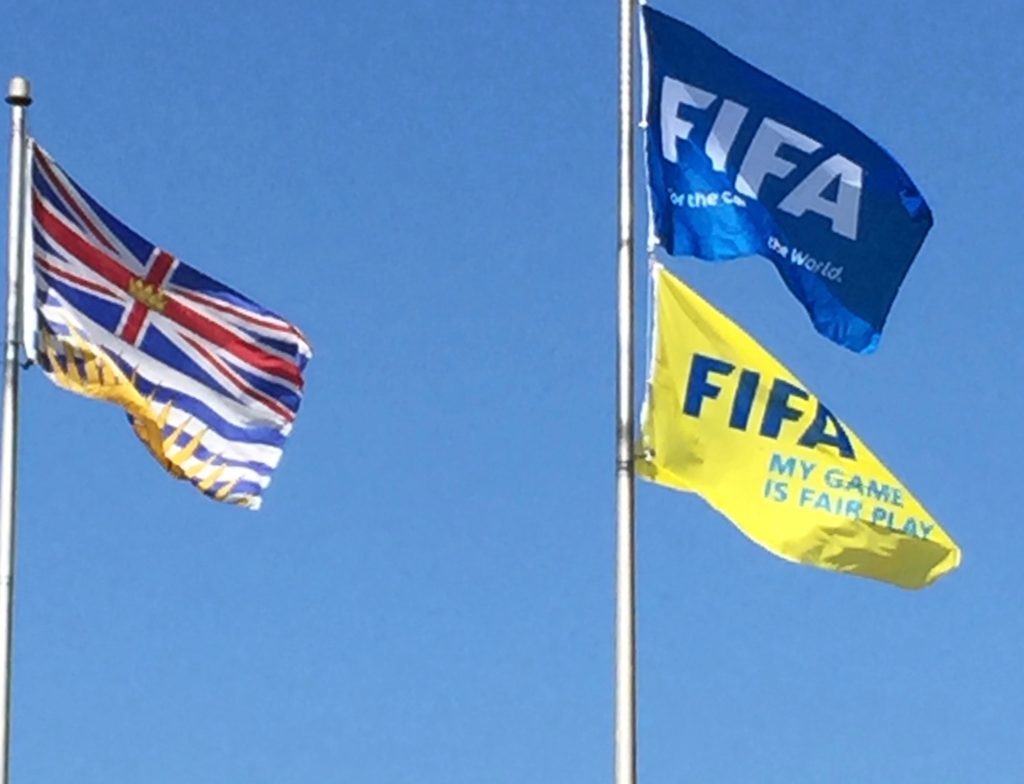
British Columbia and FIFA flags in 2015 outside the Westin Bayshore host hotel (Mackin)
The next day, action gets underway in Toronto and Los Angeles.
The biggest single-sport tournament in history will last 39 days.
Seventy-two of the 104 matches will be played in the U.S., including the final on July 19 in New Jersey’s Meadowlands. The Miami-headquartered FIFA 26 organization boasts sponsorship from Saudi Arabia and Qatar state firms and Chinese computer and dairy companies.
Cities in Mexico and Canada are scheduled to host 13 matches each.
That is, coincidentally, 25% of the matches.
Trump is tying his unreasonable 25% tariff threat to reasonable concerns about illegal aliens and fentanyl flowing into the U.S. from 2026’s junior partners.
The tournament requires border security agencies of the three countries to co-operate. Also, their militaries and police agencies will need to collaborate to keep everyone safe in the 16 host cities and everywhere in between.
The overall security cost has not been announced. The operations and capital cost sticker shock is already apparent in places like Toronto and Vancouver, where taxpayers are told to expect bills of $380 million and $581 million, respectively.
For Vancouver, the cost-per-match is as much as $83 million.
Meanwhile, the homeless and the addicted are not hard to find around B.C. Place Stadium — which will be put to a pre-2026 operational test during the June 14-July 6, 2025 CONCACAF Gold Cup.
If Trump doesn’t back down, should Canada’s Justin Trudeau and Mexico’s Claudia Sheinbaum threaten to withdraw as co-hosts of the primarily American mega-event?
The Vancouver host city agreement, obtained by theBreaker.news through a freedom of information adjudication, contains escape provisions under the heading of “Termination by Host City Authority.” There is also a “Force Majeure” clause that covers “any event which is not within the reasonable control of either party.”
Which calamities are included?
“…sanctions, boycott of the competition or otherwise and other adverse acts imposed by the government and other governmental authorities, blockage, embargo, labour dispute, strike or lockout.”
A broad definition that very well could cover an unnecessary trade war among neighbours.
NEW: Subscribe to theBreaker.news on Substack. Find out how: Click here.
The countdown is on to the second








